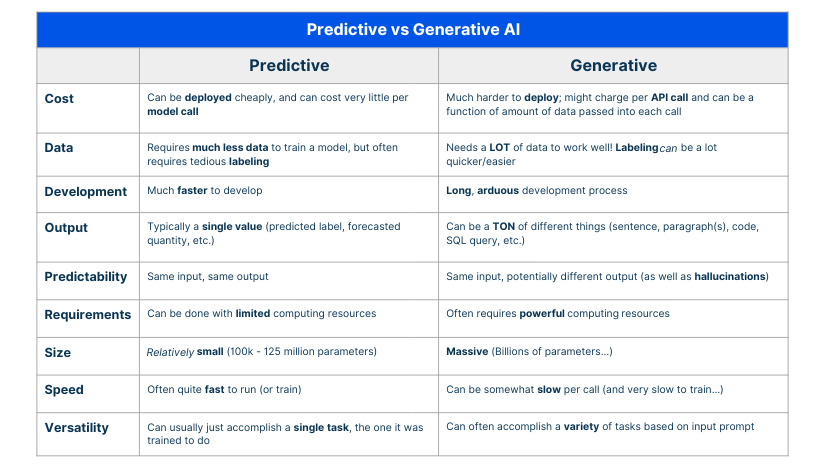
At the 2024 Healthcare Marketing & Physician Strategies (HMPS) Summit, Loyal’s Director of AI, Matt Cohen, and President, Brian Gresh, presented with Ardent Health’s Chief Consumer Officer, Reed Smith, about the state of Artificial Intelligence (AI) in healthcare.
According to a recent report, healthcare generative AI is projected to reach $22 billion by 2032.1 This reflects the finding that 94% of healthcare companies are deploying AI or Machine Learning (ML) in some capacity.2
“A small but growing number of companies are forming strategic partnerships and bringing AI solutions to the fields of drug discovery, diagnostics, patient care, and claims management.”
A New Era
The chatbot and conversational AI world fundamentally changed last year with the release of open source LLMs.
This has impacted healthcare marketing by providing enhanced opportunities in areas like:
With the rapid evolution of AI, two key forms have emerged: predictive and generative. How can these forms of AI be best leveraged in the healthcare industry? The table below outlines some of the key differences and advantages between the two.

Using AI, both predictive and generative, in healthcare settings can enhance diagnostics, improve treatment outcomes, and streamline administrative tasks, ultimately leading to more efficient and effective patient care.
Use Cases
AI Chat – Chatbot Intent Classification
AI ChatAI Assistants
AI Assistants built and deployed on top of our AI infrastructure. Assistants fundamentally answer questions (knowledge) or complete a task (skill).
Knowledge:
Skills:
Forecasting & Predictive Modeling
Appointment Utilization Forecasting:
Engagement Predictor (appointment show/no-show):
Takeaways
When discussing AI, several factors must be considered. Oftentimes AI can be influenced by bias which often stems from the training data and domain specificity. Also, deploying this technology can present challenges with ethics, privacy/security (such as HIPAA compliance), inaccuracies (referred to as “hallucinations”), and patient comfort levels.
Our perspective is that AI serves as an assistive technology, not a complete replacement for humans or existing processes. While it can streamline and optimize operations, human oversight is always necessary. At Loyal, we’ve been using AI-powered solutions since 2017. With a comprehensive AI/ML team, data scientists are embedded within our product teams so they know the problem space and build the AI pipelines around the solution.
The original version of this page was published at: https://loyalhealth.com/ai-healthcare-marketing-are-you-ready/
Loyal is end-to-end, white label digital health technology for hospitals and health systems.
When it comes to digital experience, two things that healthcare consumers want are convenience and access - especially when it comes to booking and scheduling appointments. It sounds ...read more
Chatbots: the name itself conveys the idea they’re only useful for one thing - chatting.However, that is far from the truth.The scope of what chatbots are capable of isn’t ...read more
I’ve spent a lot of time on the road recently meeting with our clients at IU Health, Northwestern Medicine, LifePoint Health, Piedmont, and more. Throughout ...read more
Voice is big and getting bigger. In 2018, 58% of consumers used voice search to find local business information, according to BrightLocal. Gartner has predicted that by 2020, 30% of ...read more